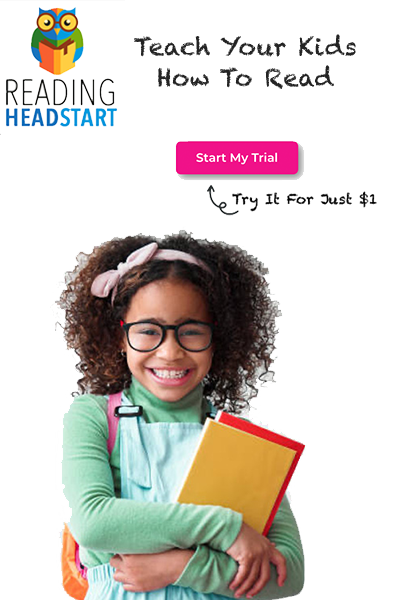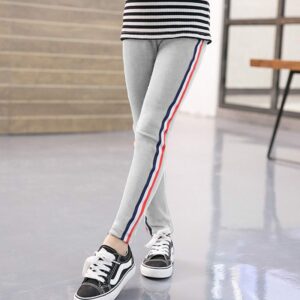It's hard enough potty training a toddler when they're ready, but how can you tell that they're ready and what is the right potty training age? According to the American Academy of Pediatrics, most toddlers are ready to start potty training between the ages of 18 and 24 months old. But every child is different, so it's important to watch your child for signs that they might be ready earlier or later than this range. If you think your toddler is ready, follow these tips to get the job done quickly.
Ce qu'est l'apprentissage de la propreté et ce dont vous avez besoin avant de commencer
It's time to say goodbye to diapers and welcome your little one to the world of big kid underwear. But before you start potty training, it's important to be prepared. Here's what you need to know about potty training, according to the experts.
Potty training is the process of teaching a child how to use the toilet for urination and defecation. Most children are ready to start potty training between the ages of 18 and 24 months, although some may be ready earlier or later. There are a few things you'll need before you start potty training, including a potty chair or seat, training pants, and patience.
The best way to start potty training is by helping your child understand what the potty is for and how to use it. You can do this by reading books about potty training together, such as “The Potty Book” by Alyssa Satin Capucilli or “Once Upon a Potty” by Alona Frankel. You can also try demonstrating how to use the potty yourself or with a doll. Once your child seems interested and ready to start learning, it's time to begin.
Il n'y a pas une seule bonne façon d'apprendre à un enfant à devenir propre. Certains enfants apprennent rapidement et deviennent propres en quelques jours, tandis que d'autres ont besoin de plusieurs semaines, voire de plusieurs mois. Le plus important est d'être patient et cohérent avec votre enfant.
Âge de l'apprentissage de la propreté - quel est le bon moment ?
It's a question that every parent struggles with – when is the right time to start potty training? Unfortunately, there's no easy answer. Every child is different, and there are a number of factors that can influence the potty training process.
Par exemple, les filles apprennent généralement à utiliser le pot plus tôt que les garçons, et les enfants qui sont exposés aux toilettes à un âge précoce ont plus de chances de réussir. La plupart des experts s'accordent à dire que les enfants commencent à s'intéresser à l'utilisation des toilettes vers l'âge de 18 mois. Bien sûr, chaque enfant est différent, et certains peuvent être prêts plus tôt ou plus tard que d'autres.
However, waiting too long to start potty training can often make the process more difficult. So if your child is showing signs of readiness, it's usually best to start sooner rather than later.
Signs of readiness include staying dry for longer periods of time, hiding to go to the bathroom, or telling you when they need to go. If your child is exhibiting any of these behaviors, it's a good time to start potty training.
With a little patience and plenty of encouragement, you'll soon be on your way to an accident-free home.
Comment apprendre la propreté à un jeune enfant - les principes de base
L'une des premières choses à faire lorsque vous apprenez la propreté à votre enfant est de le débarrasser de ses couches ou de ses couches-culottes. Contribuer au processus d'apprentissage de la propreté en lui facilitant la tâche permettra de préparer le terrain et de garantir le succès. Une fois que vous avez décidé qu'il est temps de commencer, assurez-vous que vous et votre enfant êtes tous deux prêts. En règle générale, si votre enfant peut suivre des instructions simples, il est probablement prêt à apprendre à utiliser le pot.
Lorsque vous êtes tous deux prêts, prenez le temps d'expliquer ce qui va se passer et pourquoi. Utilisez des termes simples que votre enfant comprendra, par exemple en lui disant qu'il utilisera dorénavant le "pot des grands".
Les tout-petits ont généralement une capacité d'attention limitée, alors faites en sorte que vos explications soient courtes et douces. Il est également important de choisir un bon moment pour commencer l'apprentissage de la propreté. Si possible, commencez quand il n'y a pas de changements majeurs dans la vie de votre enfant, comme un déménagement ou la naissance d'un nouveau frère ou d'une nouvelle sœur. Voici les étapes nécessaires que vous devez maîtriser :
1. Commencez par établir des routines régulières pour aller aux toilettes. Veillez à ce que votre enfant aille aux toilettes à des moments précis de la journée, par exemple après les repas ou avant la sieste. Cela aidera votre enfant à prendre l'habitude d'utiliser le pot régulièrement.
2. Encouragez votre tout-petit à utiliser le pot avant et après des activités qui lui donnent normalement envie d'y aller, comme jouer dehors ou prendre un bain. Cela l'aidera à se sentir plus à l'aise avec l'idée d'utiliser le pot.
3. Utilisez le renforcement positif lorsque votre enfant utilise le pot avec succès. Félicitez-le et offrez-lui des récompenses, telles que des autocollants ou des petits jouets, pour l'encourager à continuer à faire du bon travail.
4. Be patient and recognize that accidents will happen. It's important not to get frustrated or punish your child if they have an accident. Just calmly encourage them to try again next time.
With a little patience and plenty of encouragement, you'll soon be on your way to an accident-free home. Just remember to go at your child's pace and be prepared for a few accidents along the way. Soon enough, potty training will be a thing of the past.
Techniques avancées d'apprentissage de la propreté
So you've decided it's time to start potty training your toddler. Congratulations! Potty training can be a challenging process, but with a little patience and perseverance, you and your child will get through it together. Here are a few tips and tricks to help you through the tough times:
• Make sure your child is ready. Potty training is a big step for a toddler, and it's important to make sure they're physically and emotionally ready before you start. If they're not interested in using the potty or seem resistant, it's best to wait until they're a little older.
• Establish a routine. Toddlers thrive on routine, so it's important to establish one for potty training. Try to take your child to the bathroom at the same time each day, or after every meal. This will help them get into the habit of using the potty regularly.
• Be patient. Learning to use the potty takes time, so don't expect perfection from your toddler. They may have accidents, and that's okay. Just stay positive and encourage them to keep trying.
- Proposez des incitations. De nombreux tout-petits sont motivés par les récompenses, alors pensez à leur offrir quelque chose de spécial lorsqu'ils utilisent le pot avec succès. Il peut s'agir d'un autocollant, d'un petit jouet, ou même simplement d'un peu plus d'attention et d'éloges.
• Be prepared for setbacks. Potty training can be a long and difficult process, so it's important to be prepared for setbacks. If your child seems to be regressing, don't get discouraged. Just take a break from potty training for a few days and try again later.
Problèmes courants d'apprentissage de la propreté et comment les résoudre
Magazine "Parents has a great article on potty training that I read when my son was first starting out. They list the most common problems parents face when potty training their child and give solutions for each. I'll list a few of the problems and solutions below.
1. My child won't sit on the potty.
This is common, especially with boys. They just don't like the idea of sitting down on a cold, hard toilet seat. The solution is to get a potty seat that goes over the regular toilet seat. This way, it's not so cold and hard, and your child will be more likely to use it.
2. My child won't stay seated long enough to go potty.
This problem is usually caused by anxiety or excitement. The solution is to have your child sit on the potty for short periods of time throughout the day, even if they don't have to go right then. This will help them get used to the idea of sitting on the potty and eventually they'll be able to stay seated long enough to go.
3. My child won't poop in the potty.
This is a common problem because, let's face it, poop is gross. The solution is to be patient and encourage your child to try a little bit each day. Eventually they'll get used to the idea and won't mind doing it in the potty.
4. Mon enfant a peur du pot.
This is another common problem, especially with girls. The solution is to let your child play with the potty before you start using it. This way they can get used to the idea and won't be so scared when it's time to use it for real.
5. My child won't potty in public.
C'est un problème courant car de nombreux enfants ont peur d'utiliser le pot dans les toilettes publiques. La solution consiste à trouver des toilettes adaptées aux familles et équipées d'un siège pour le pot, ou à apporter votre propre siège pour le pot lorsque vous sortez. De cette façon, votre enfant se sentira plus à l'aise et sera moins susceptible d'avoir un accident.
6. My child won't potty at night.
This is a common problem because many toddlers are afraid of using the potty in the dark. The solution is to keep a potty seat in your child's room and take them to the bathroom before they go to bed. This way, they'll be less likely to have an accident during the night.
7. My child won't potty when they're sick.
Sickness is a general problem with little kids, not only while potty training. They're overly emotional and react to everything. The solution is to be patient and understanding. They'll eventually get over it and potty like normal again.
8. My child won't potty when they're constipated.
Well, that's a tough problem. It requires a lot of patience, emotional encouragement and love. The solution is to help your child through constipation with laxatives or stool softeners. This way, they'll be able to potty like normal again.
9. My child won't potty when they're on a schedule.
The solution is to be patient and try to potty them every hour or so. Eventually, they'll get used to the idea and potty on the schedule.
10. My child won't potty when they're on a diet.
Faire un régime est déjà un problème difficile pour un enfant. Ne pas pouvoir ou être autorisé à manger les choses qu'il aime est difficile. Ce n'est peut-être pas le bon moment pour l'apprentissage de la propreté ou une deuxième chose à apprendre en parallèle. Vous devriez encourager votre petit à essayer les toilettes de temps en temps, mais lorsque cela devient difficile, reportez l'entraînement à un autre jour.
11. My child won't potty when they're on vacation.
We all love our own toilets, don't we? And even a lot of adults have problem with pottying in foreign toilets. The solution is to bring your own potty seat with you when you go on vacation. This way, your child will feel more comfortable and be less likely to have an accident.
Conseils d'apprentissage de la propreté pour les garçons et les filles
Si l'apprentissage de la propreté chez les garçons et les filles présente de nombreuses similitudes, il existe également quelques différences importantes.
Par exemple, les garçons ont généralement besoin de plus de patience et de renforcement que les filles. En effet, les garçons ont souvent un instinct naturel plus fort pour retenir leur urine, ce qui peut rendre l'apprentissage de la propreté plus difficile. En outre, les garçons ont tendance à être plus actifs que les filles et sont moins susceptibles de rester immobiles suffisamment longtemps pour utiliser le pot. Par conséquent, il est important d'être patient et cohérent lors de l'apprentissage de la propreté chez un garçon.
Les filles, en revanche, répondent généralement bien au renforcement positif et aux encouragements légers. En effet, les filles ont tendance à être plus dociles et coopératives que les garçons. En outre, les filles ont généralement des muscles vésicaux plus faibles, ce qui peut rendre les accidents plus fréquents. Il est donc important de se préparer à des accidents lors de l'apprentissage de la propreté chez une fille.
Malgré ces différences, l'apprentissage de la propreté chez les garçons et les filles peut être une expérience enrichissante, tant pour les parents que pour les enfants.
Quand arrêter l'apprentissage de la propreté
When it comes to potty training, there isn't necessarily a hard and fast rule about when to call it quits. However, most experts agree that the job is usually done when your child is able to stay dry for several hours at a time, has decreased the number of accidents overall, and is using the toilet without prompting or reminders from you. You can also check with your child's pediatrician to see if he or she has any specific recommendations.
Once you've determined that potty training is complete, there are a few other important tasks that should be next on your schedule.
For instance, it's important to teach your child how to properly wash his or her hands after using the toilet. This will help prevent the spread of illness-causing germs. Additionally, you'll want to show your child how to properly clean the toilet, both for hygiene purposes and to prevent clogs. Finally, you'll need to stock up on potty training supplies, such as toilet paper, flushable wipes, and a small step stool.
Avec un peu de patience et d'efforts, l'apprentissage de la propreté peut être une expérience réussie et positive pour vous et votre enfant. N'oubliez pas de vous préparer aux accidents, de garder votre sens de l'humour et, surtout, de rester calme. Bonne chance !
Quels sont les trucs et astuces pour l'apprentissage de la propreté qui ont fonctionné pour vous et votre enfant ? Partagez vos expériences dans les commentaires ci-dessous !







































